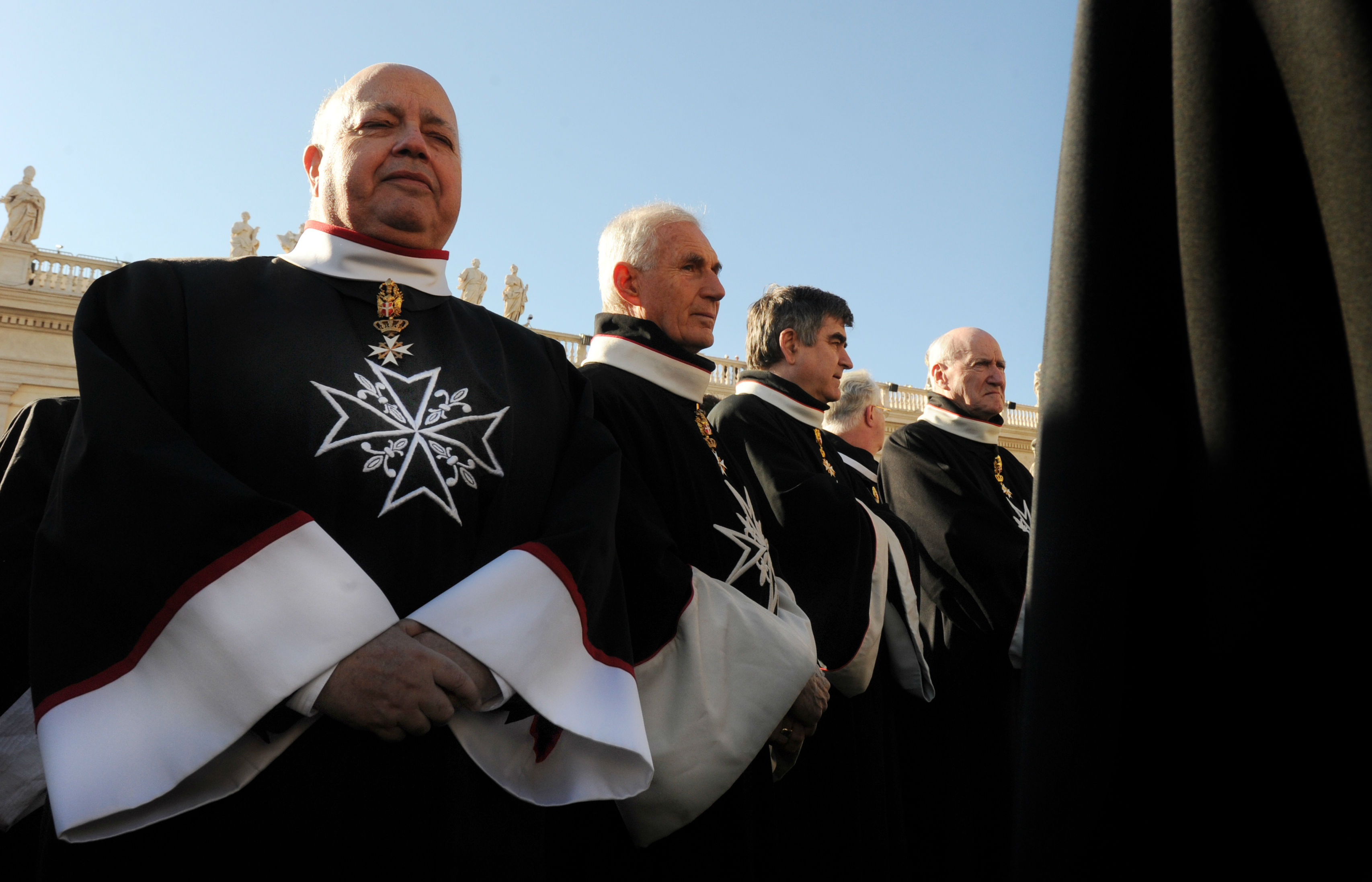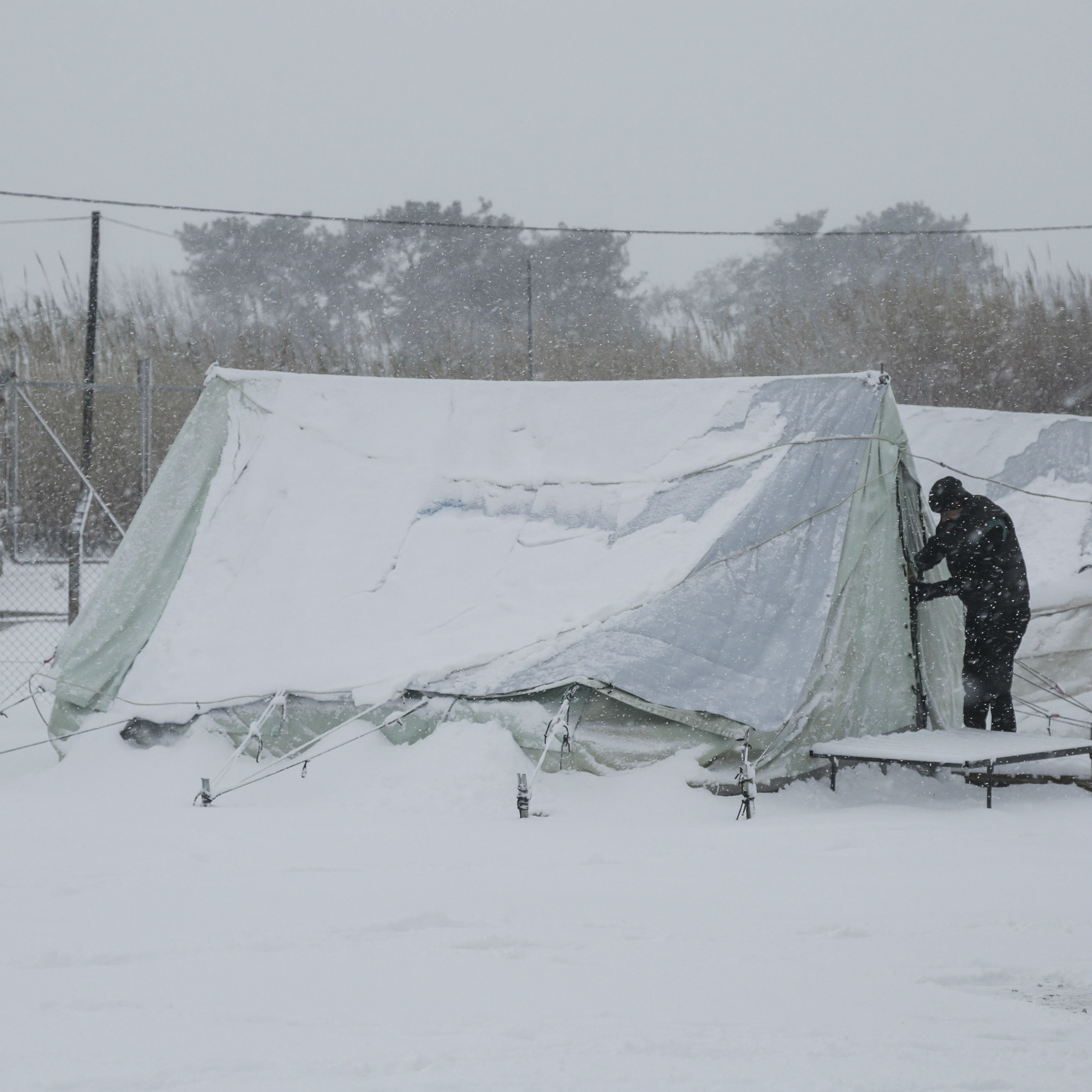The Catholic aid agency, CAFOD, has stepped up its emergency aid response as refugees stranded in Greece risk of freezing to death as unprecedented sub-zero weather conditions continue to sweep across Europe.
As temperatures plummeted to minus 15 degrees in the north of the country last week, Caritas Greece said thousands of refugees and migrant were sleeping outside in flimsy tents or in abandoned buildings. In some cases, they had no access to water as pipes and water sources froze.
“There is no heating. People are giving refugees wood to start fires or electric stoves. They burn anything they can to stay warm. It’s really dangerous as it could cause a fire,” said Maristella Tsamatropoulou, Caritas Greece’s Communications Officer.
“Our partners are doing all they can to provide food and water for refugees stranded in Greece, said Giovanna Reda, CAFOD’s Head of Humanitarian Programmes for Asia, Middle East and Latin America.
Last week the aid agencies gave an additional £100,000 to Caritas Greece in order to provide urgently needed food and water for refugees, as well as safe shelter.
In Moria, a large camp on the Greek island of Lesbos, around 4,500 people are living in overcrowded conditions in thin summer tents. At least one refugee, an Afghan man, is said to have died as a result of the cold conditions within the camp, local Greek media has reported. Thousands more are said to be at risk.
Humanitarian aid agencies have condemned European Governments for leaving refugees to freeze and for their continued failure to deal with the migrant crisis.
“What we are seeing on the [Greek] islands is the manifestation of the way Europe is failing to provide dignity for some of the world’s most vulnerable,” said Panos Navrozidis, country director of the International Rescue Committee in Greece. “It is imperative that people are moved off the Greek islands. The IRC warned of these life-threatening conditions months ago yet still now with this weather we face a life-or-death situation.”
The Greek navy sent a ship to the island of Lesbos on 11 January to provide emergency shelter for 500 refugees living in the Moria camp.
Yet in a fiery exchange in parliament last week, the migration policy minister, Yannis Mouzalas, conceded that refugees trapped in the country were living in appalling conditions exacerbated by severe cold weather and unprecedented snowfall nationwide.
“The situation in the hot spots is very bad,” he said. “Conditions on the islands are awful.”
Mouzalas later announced he was trying to arrange temporary accommodation in tourist hotels for refugees living in tents but warned of delays due to legal and civil protection issues.
The Greek Government has faced consistent criticism during 2016 for its failure to deal with the estimated 62,000 migrants stranded within the country, following the closure of its borders.
The charity Medicins Sans Frontiers (MSF) has said it is particularly concerned for 2,000 asylum seekers living in the Serbian capital Belgrade, where the camps are stretched to capacity and temperatures have reached minus 20C degrees.
“Migrants are left with no option other than to sleep in abandoned, open buildings in freezing temperature,” reports Stephane Moissaing, MSF’s Head of Mission in Serbia.
“For months we have called on EU, UNHCR and Serbian authorities to put in place long-term solutions to avoid this catastrophic situation. The collective failure of these institutions has left even the most basic needs uncovered, exposing already vulnerable people to even more suffering,” added Moissaing.
PICTURE: In Softex refugee camp, northern Greece, the temperature fell to minus 8 degrees, while 20cm of snow fell in half a day last week.




 Loading ...
Loading ...